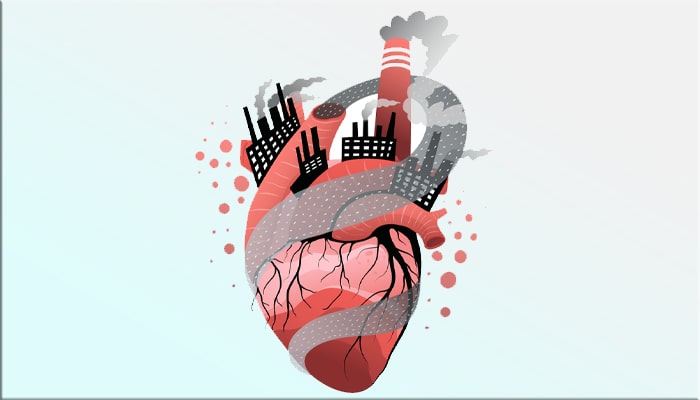Air Pollution Can Hurt Your Heart
Air pollution is nothing but a collection of intensely small particles as well as gases in the air which may result in harmful health if you breathe them in. These may involve: gases like ozone, nitrogen dioxide, sulphur dioxide and carbon monoxide; as well as a particulate matter which is formed of solid and liquid particles like dust and soot.
Some Air Pollution facts:
Lots of people may not relate air pollution with the risk factor for heart disorders, but this is a fact that polluted air does more than making you cough and hiss. Heart disorders account for a huge segment of the millions of deaths resulting from air pollution globally every year, as per the latest study. Infants, elderly, as well as individuals with existing heart conditions, are most expected to be negatively affected by air pollution.
Recent research studies have associated atrial fibrillation as well as blood clots formation in the lungs with the minute particulate matter in air pollution. This gives way to new concerns relating to all the ways that Air Pollution Can Hurt Your Heart Health.
How Air Pollution Can Hurt Your Heart Health?
The bad air, containing damaging gases and particles, travels straight from your respiratory system or lungs into your cardiovascular system. When air pollutants go into your lungs, it results in inflammation. This inflammation penetrates the thin tissue of the lungs and then into the bloodstream, where it mixes and brings about certain cardiovascular problems such as heart attacks or stroke. Also, research has found that air pollution effects can influence your heart and circulation by:
- Causing damage in the internal walls of your blood vessels, making them harder and narrower.
- Making your blood more prone to clot.
- Causing slight modifications in the structure of the heart similar to those observed in the early phases of heart failure.
- Limiting the motion of your blood vessels, this may add to increased blood pressure and encourage greater strain on your heart.
- Having an effect on the usual electrical working of your heart which might give rise to irregular abnormal heart rhythms.
This destruction done may add to the development of new health issues, or put individuals with underlying cardiovascular diseases at an augmented risk of events such as a heart attack or stroke.
The minute air particulates and chronic risk:
Air pollution comprise of small or large particles of dirt or other contaminants. Small particulate matter (also known as particles with a diameter smaller than 2.5 micrometers) is particularly found to be hazardous for health. Studies say that a chronic or long-term exposure to small particulate air pollutants leads to an increase in the possibility of developing cardiovascular disease or stroke.
How to limit your risk?
- When air pollution attains damaging levels, any person at risk; predominantly patients with cardio problems must stay away from outdoor activities.
- You can assist in defending yourself and your dear ones from heart disorders by learning about the unanticipated risk factors. Make certain to take care of your teeth along with getting a sound sleep, for an instance.
- For the meantime, it’s also very important to keep on being vigilant regarding all the well-studied risk factors including regular blood pressure monitoring and a good diet program. There are many other ways you can adopt to lower your risks. Thus, by taking some simple steps you can stay as healthy as possible when the air pollution levels are quite high.
Your risk of heart problems is at the end affected by your diet, your physical activity, your lifestyle whether you smoke, and most likely also by air pollution. So, this may be the right time to begin paying more attention to all these local air pollution alerts.

